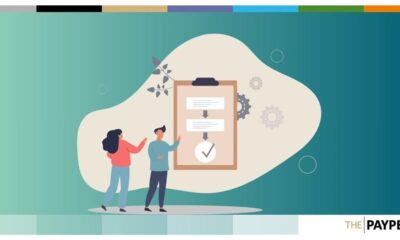News
How Artificial Intelligence is Shaping the Blockchain Landscape
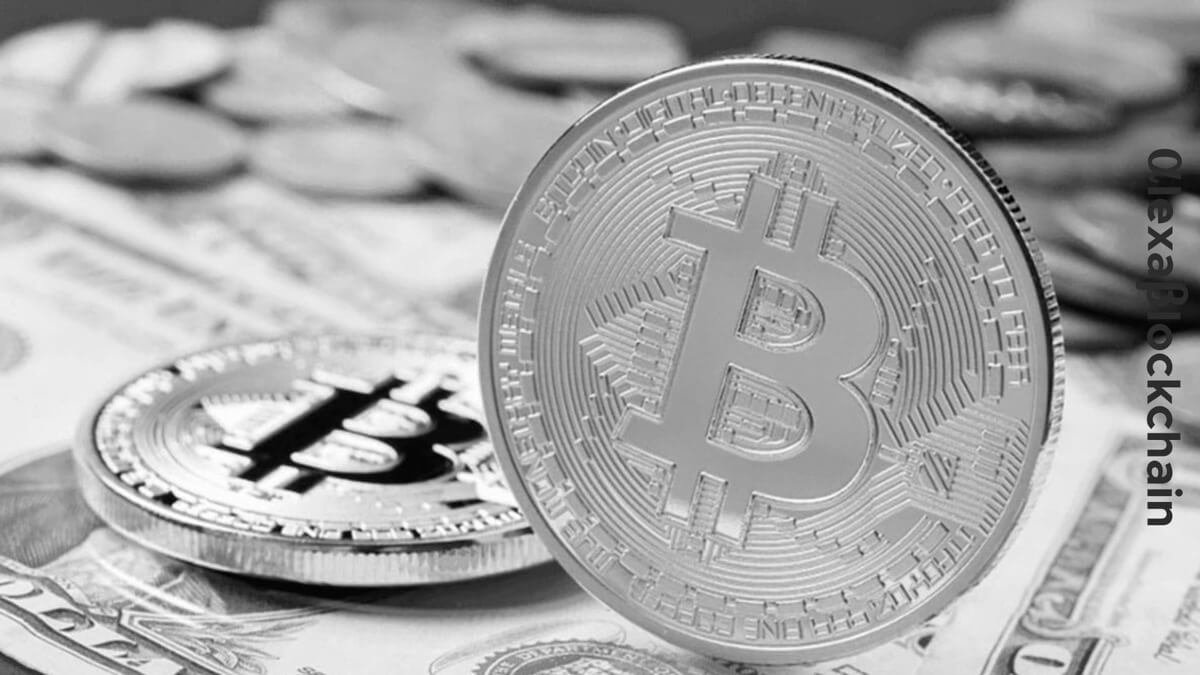
Artificial intelligence is starting to increase in popularity with new technologies pushing the boundaries of what is possible. Machines are now able to mimic human intelligence, to a certain extent, as algorithms are developed to allow machines to complete tasks that would normally be performed by humans. AI’s ability to make complex decisions and complete tasks across a broad spectrum has made people consider using it to essentially do the work for them.
When it comes to Blockchain, it initially gained prominence as a technology for cryptocurrencies like Bitcoin. It consists of a chain of blocks that each contain a record of transactions. These transactions are transparent and traceable, which increases trust among users of the technology. However, it is highly secure and tamper-resistant, so you know your transactions are safe.
The combination of AI and Blockchain has changed the way we buy, sell and manage properties, as it changes the dynamics of the real estate industry. In this article we will explore the world of Blockchain and how artificial intelligence is shaping the landscape of Blockchain as a new technology on the market. We will also take a look at the future of AI in Blockchain.
Greater security
Security can be significantly improved with the use of artificial intelligence in Blockchain. To protect data, Blockchain technology relies on cryptographic techniques, as this makes it difficult for unauthorized users to access it. This can also be used for cryptographic recovery. AI can add an extra layer of protection, as it enables proactive surveillance that can detect any anomalous or strange behavior that could negatively affect your Blockchain.
AI can also help prevent fraud and scams by identifying any behavior deemed fraudulent. It achieves this goal through several methods:
Malware Detection: If your Blockchain network is infected with malware, it can compromise its security. AI can detect and identify it before it happens.
Threat Prediction: Historical data can be used by AI to predict any potential threats. It will review any past cyber attacks so you can learn how to deal with them if they happen again.
Behavior analysis: Any sudden changes in user behavior can be detected by the AI, so if you have attempted to access sensitive information, the AI will be alerted to this.
Improved Authentication: Biometric authentication improves the security of Blockchain technology. It allows users to be recognized through methods that are personal to them, such as their face, fingerprint or voice.
Smart Contract Security: Many Blockchain applications require smart contracts. AI can take a look at these contracts to explore if there are any weaknesses.
Smart contract optimization
AI can execute and make smarter decisions to make the Blockchain process more efficient. However, this depends on the accuracy of the predetermined conditions. Advanced monitoring, predictive analytics, automated error handling, natural language processing, and scalability are all ways that AI can monitor and manage smart contracts and make sure everything is correct with transactions.
The use of AI can also reduce contractual disputes and errors, as it offers innovative solutions to mitigate any problems that may arise. Tools and methods that reduce these errors include smart contract auditing, risk assessment, conflict resolution, data verification, and smart legal contracts.
Supply chain management
AI has the power to identify patterns, detect anomalies, and optimize processes to improve supply chain management. This means supply chain managers are able to gain valuable insights into their Blockchain transactions, which allows for better management, reduced downtime, and smooth movement of goods.
The use of artificial intelligence in Blockchain can introduce real-time monitoring and traceability of transactions. Delays and lack of visibility are a constant problem for traditional supply chains, but the combination of AI and Blockchain can eradicate these problems. The AI algorithms put in place are able to analyze what moves through the Blockchain with the use of sensors and GPS devices that provide real-life information.
Identity verification
To make your Blockchain more secure, you could use AI-based verification methods. AI algorithms can add another layer to the already secure Blockchain system. Biometric authentication, smart contracts for verification, and decentralized identity are ways that AI can improve the identity verification process.
The combination of AI and Blockchain can also mitigate the threat of fraud and identity theft. These threat mitigations include:
Immutable Records: Once verified and recorded, identity data cannot be modified or deleted without permission from the network. This prevents unauthorized changes.
Greater privacy: Artificial intelligence gives users more control over personal data. It can identify who can access this information so that sensitive data is protected.
Real-time verification: Fraudsters will find it more difficult to use stolen data if real-time verification is required first. Suspicious activities can be flagged by AI technology.
Cross-Border Verification: Cross-border transactions are made more secure and efficient with AI in Blockchain. This can be beneficial for international trading options.
Asset tokenization
Physical assets are viewed as digital tokens on the Blockchain with the use of asset tokenization. The identification, valuation and management of these tokens are precisely enabled by artificial intelligence algorithms. These algorithms analyze various factors to determine how much each token is worth, which ensures that a wider range of investors can have access to high-value assets. Investors can also have a clearer view of their assets and holdings based on real data monitored by artificial intelligence.
Global accessibility, fractional ownership, increased security, and smart contracts are significant benefits of AI-based asset tokenization in terms of liquidity and accessibility. Today, more people from different places can participate in the market, eliminating geographical boundaries.
DAO
DAOs rely on Blockchain technology to make decisions without centralized control, and artificial intelligence plays an important role in this. Smart contract optimization, decision support, predictive analytics, and dynamic governance are ways AI helps ensure efficient and effective decision making.
AI can provide valuable insights to DAO members by analyzing data from multiple sources. This minimizes the risk of errors and well-informed decisions are made. Here are some of the advantages of DAOs in Blockchain:
Decentralization: Instead of relying on the decisions of one person, like a CEO, a DAO can decentralize authority to a much larger number of users.
Participation: A DAO can encourage token holders to cast votes, burn tokens, or use tokens in the best way to help the entity.
Advertising: Votes are cast via Blockchain and made visible to the public. This will discourage acts against the community.
Community: Having a DAO can encourage people from different places to come together for a single cause. Token holders can therefore interact with anyone, regardless of where they are.
Interoperability
Interoperability, also known as cross-chain integration, refers to the ability of different Blockchain networks to communicate with each other. Artificial intelligence technology helps find the common ground needed for interaction and information sharing. It can decipher language to establish a way of communicating that everyone can understand. This improves the efficiency of data transfer and ensures the security of cross-chain transactions.
This is important because it increases liquidity, improves scalability, decentralizes personal finances, and reduces transaction costs overall.
Forecast trends
You can predict market trends and behavior through predictive analytics. It predicts market prices, optimizes the supply chain, detects fraud and analyzes customer behavior. The AI will examine and examine historical data of cryptocurrencies and Blockchain assets, then recognize patterns to predict the future and predict price trends.
Artificial intelligence can improve the complex decision-making processes involved in Blockchain projects by providing data-driven insights. Help with the following:
Scalability planning: AI has the power to analyze network data and predict when scaling solutions are needed. This keeps the Blockchain running efficiently.
Tokenomics Design: The design of tokens by analyzing the market is assisted by the use of artificial intelligence. This means that they can then be distributed equally.
Risk Assessment: Assessing the risks of a project is essential when starting a Blockchain venture. Artificial intelligence can evaluate historical data to predict possible risks.
The Future of Artificial Intelligence in Blockchain
It is expected that we will see a deeper integration of AI and Blockchain with virtual reality, which should lead to the creation of virtual worlds such as the metaverse. This will provide new opportunities for investors and an improved user experience. This can then lead to further growth in decentralized finance, which will be driven by AI-enhanced security and cross-chain integration.
Having AI in the Blockchain can also lead to a rise in central bank digital currencies (CBDCs). These offer programmable money possibilities, automating payments and reshaping the financial landscape. This may lead to more businesses adopting Blockchain for their operations, as it can streamline processes while adding additional security.
We should also expect legal and regulatory evolution as Blockchain and AI continue to grow and develop. There should be more action against unregistered cryptocurrency products, which will add legal clarity to Blockchain developers.
News
Blockchain Technology Will Transform Water Access and Management Globally

Disclosure: The views and opinions expressed here are solely those of the author and do not represent the views and opinions of the crypto.news editorial team.
Access to clean water is a basic human need, yet billions of people around the world still struggle to get it. According to the World Health Organization, over 2 billion people live in countries suffering from severe water stress, and this number is expected to continue to grow due to climate change and population growth.
Traditional water management systems have struggled to address these challenges, often hampered by inefficiencies, lack of transparency, and misallocation of resources. Blockchain technology offers a promising solution to these challenges, providing equitable access and sustainable use of this crucial resource.
The current state of water management
Water management today faces several pressing issues. Inefficiencies in water supply, distribution, and use, coupled with a lack of real-time monitoring, often result in resource waste and misallocation. Many water sources fail to realize their full potential due to infrastructure and financing shortfalls. For example, the Environmental Protection Agency (EPA) report indicated that the United States would need to invest $625 billion over the next 20 years to repair, maintain and improve the country’s drinking water infrastructure due to aging pipes and other infrastructure problems. Additionally, in the United States alone, household leaks can to waste nearly 900 billion gallons of water per year nationwide. This is equivalent to the annual domestic water consumption of nearly 11 million homes.
Furthermore, corruption and mismanagement of water resources can cause unequal distribution, with disadvantaged communities often bearing the brunt of water scarcity. For example, South Africa is struggling with myriad challenges to its water security: drought, inadequate water conservation measures, outdated infrastructure, and unequal access to water resources. The country faces significant water scarcity, with demand expected to outstrip supply by 2030, creating a projected gap of 17%.
Furthermore, the global water industry is highly monopolized, with a few key players controlling a significant share of the market. These companies exert substantial influence over the water supply chain, often prioritizing profit over equitable distribution and environmental responsibility. This concentration of power can lead to inflated prices and limited access for vulnerable populations. The global bottled water market alone is projected to reach $509.18 billion by 2030, with these large companies capturing a significant share of revenue. This monopolization exacerbates existing inequalities in water access and highlights the need for more decentralized and community-driven water management solutions.
Source: Grand View Search
The potential of blockchain in water management
Blockchain technology can address these issues by providing a transparent, secure, and decentralized platform for water resource management. This approach offers several advantages:
- Transparency and accountability. Blockchain’s immutable ledger ensures that all transactions and data entries are transparent and cannot be changed once recorded. This transparency can reduce corruption and ensure that water resources are allocated fairly and efficiently. For example, blockchain can be used to track water usage from source to end user, providing a clear record of how water is distributed and used. This level of transparency can help hold authorities accountable and manage water resources sustainably.
- Efficient resource management. Blockchain can facilitate the creation of smart contracts, which are self-executing contracts with the terms of the agreement written directly into the code. These contracts can automate water distribution based on real-time data, directing water to where it is needed most. For example, smart contracts could be used to manage urban water supply systems, automatically adjusting water distribution based on real-time consumption patterns and demand. This can help optimize water use, reduce waste, and ensure that households and businesses receive the right amount of water at the right time.
In Dubai, the Dubai Electricity and Water Authority (DEWA) has implemented a blockchain-based smart water network initiative as part of its broader smart city strategy. This project integrates blockchain technology with IoT sensors to monitor water usage in real time, manage distribution, and detect leaks. The decentralized ledger ensures data integrity and transparency, enabling more efficient water management and reduced waste. DEWA’s initiative aims to improve sustainability and resource management in the rapidly growing city, highlighting the potential of blockchain to support urban water management and conservation efforts.
Community participation and ownership
Through blockchain, individuals can directly control and monetize their access to water resources, eliminating the need for third-party intermediaries. This direct control model allows local communities to make collective and transparent decisions about their water use. By managing their water directly from the source, communities can tailor water management practices to their specific needs, promoting equitable distribution and encouraging a sense of accountability and stewardship.
Additionally, future models could allow people to monetize their access to water through web3 technologies. For example, a community-to-business (C2B) model could allow people to sell water directly to companies. In this model, people do not have to own the water directly, but can profit by staking their tokens during event sales pools. This approach not only supports sustainable water management, but also creates economic opportunities for community members. Additionally, a “Burn to Secure” protocol can be used to provide water allocation rights. This protocol provides a true sense of water security and financial opportunity by allowing people to redeem their rights. This system not only secures future water allocations, but also increases token scarcity and value.
Additionally, a pure sense of investment is achieved through investments in water sources. This leads to potential financial returns and dividends by addressing the inefficiencies in water supply mentioned above. By investing to finance infrastructure projects, such as building factories and improving distribution systems, more water can be brought to communities, creating additional economic opportunities.
Monetizing water access through the C2B model, the “Burn to Secure” protocol, and investments in water sources all generate economic benefits for the community, promoting a more equitable and efficient water management system.
Overcoming challenges
While blockchain technology has the potential to improve water management, there are challenges to its adoption. The complexity of blockchain systems and the need for technological infrastructure can be barriers, especially in developing regions. Additionally, there are concerns about the significant energy consumption of blockchain networks. However, technological advances and the development of more energy-efficient blockchain solutions are helping to alleviate these concerns. Additionally, education and capacity building are key to ensuring stakeholders understand how to effectively use blockchain technology. Governments, NGOs, and private sector partners need to work together to provide training and support to communities and water management authorities.
Blockchain technology offers a practical and effective means to improve water management. In addition to addressing inefficiencies, blockchain empowers communities, promotes sustainable practices, and opens up new economic opportunities through models like community-to-business (C2B). As we face the growing challenges of climate change and population growth, blockchain is not only an innovative solution, but represents a fundamental shift in the way we manage and value water resources. Adopting blockchain in water management is essential to creating a sustainable and equitable future by changing the way we interact with and protect our most vital resource.

Jean-Hugues Gavarini
Jean-Hugues Gavarini is the CEO and co-founder of LAKE (LAK3), a real-world asset company leveraging blockchain technology to decentralize access to the global water economy. LAKE aims to ensure access to clean water for all, protect water resources, and deliver water to those in need through innovative technologies. Jean-Hugues has a diverse career spanning the luxury, fashion, and footwear industries. His career path includes notable successes at Mellow Yellow, Cremieux, and Tod’s. Raised between Silicon Valley and the French Alps, Jean-Hugues has always been immersed in technology and freshwater resources. In 2018, Jean became the CEO of Lanikea Waters, a water solutions entity based in the French Alps. In 2019, the concept of LAKE was born, embodying his commitment to innovation and sustainability.
News
Blockchain and AI Expo 2024
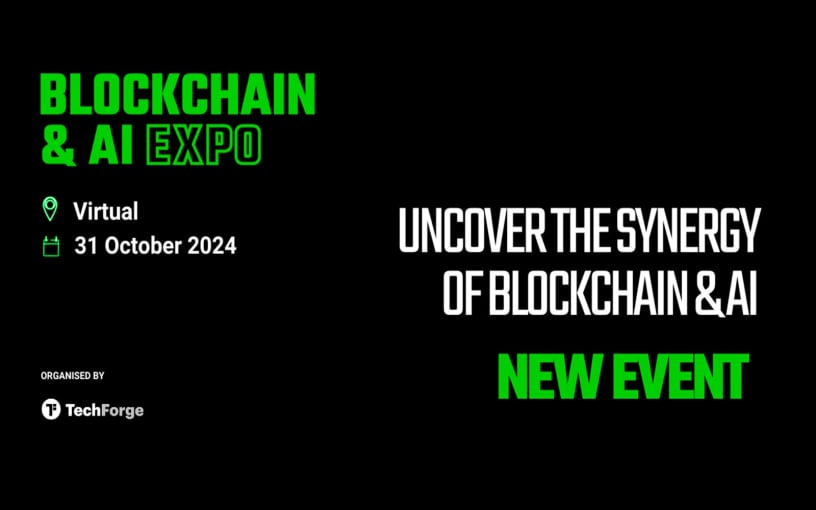
With rapid advances in the world of AI and blockchain, there are opportunities to leverage the security and transparency features of blockchain to improve the reliability and trust of AI systems and data transactions.
Explore the synergy of these advanced technologies in virtual mode Blockchain and AI Expowhich takes place on October 31, 2024 TO 10:00 GMT.
The event features cutting-edge presentations led by leading experts in evolving fields. Presentations are set to explore opportunities and challenges in the fusion of blockchain and AI, real-world applications, ethics, innovations in environmental sustainability, and more!
Gain a comprehensive understanding of how these technologies can synergistically drive innovation, optimize operations, and promote strategic growth opportunities. Develop your knowledge to facilitate informed decision making and give your company a competitive edge in the growing technology landscape.
News
Nigeria Eyes National Blockchain Nigerium for Data Sovereignty
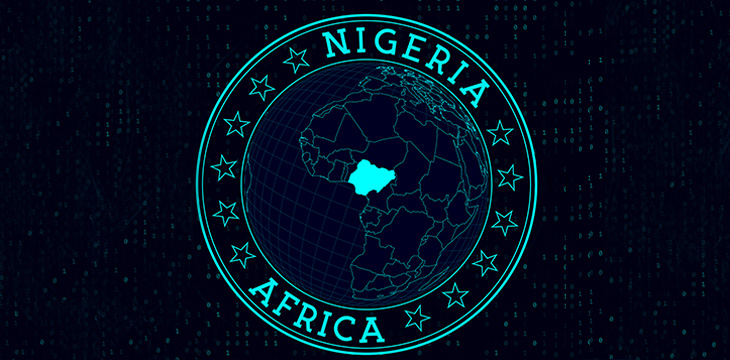
Nigeria is keeping an eye on a new native blockchain network to protect the country’s data sovereignty.
According to local media, a team from the University of Hertfordshire has proposed the new blockchain, Nigeriato the National Information Technology Development Agency (NITDA).
Chanu Kuppuswamy, who leads the team, argued that relying on blockchain networks whose developers are located in other regions poses national security risks to the Nigerian government. He further said that Nigerium would allow the West African nation to customize the network to meet specific needs, while also promoting data sovereignty.
In his presentation, Chanu cited the recent migration of Ethereum to test of participation (PoS) consensus as an instance in which no Nigerians were involved but whose impact is far-reaching.
“Developing an indigenous blockchain like Nigerium is a significant step towards achieving data sovereignty and promoting trust in digital transactions in Nigeria,” he said.
While receiving the proposals in Abuja, NITDA’s Kashifu Abdullahi acknowledged the benefits a local blockchain would bring to Nigeria, including increased security of citizens’ data.
However, a NITDA spokesperson later clarified that Nigerium is still at the proposal stage and that the government has not yet decided whether to proceed or not.
“The committee is still discussing the possibility with stakeholders. Even if a decision is finally made, there is no guarantee that the name will be Nigerium,” the spokesperson told the media.
Nigerium’s reception in the country has been mixed. Some, like financial analyst Olumide Adesina, To say the network is “dead on arrival”. He believes the Nigerian government’s poor record in following through on its big technology plans will claim another victim. He pointed to the eNaira as a missed opportunity whose chances of success were much higher than those of Nigerium.
Others welcomed the proposal. Chimezie Chuta, who chairs the renewed The Nigerian Blockchain Policy Committee is “extremely optimistic“that Nigerium will be more successful than eNaira.
Speaking to a local news agency, Chuta stressed that eNaira failed because the central bank initiated the project on its own, without involving any stakeholders.
“They just cooked it and expected everyone to like it. [With Nigerium]there will be a lot of collaboration,” he said.
Registration of property title, digital identity and Certificate Verification are among the use cases that Nigerium is expected to initially target. However, Nigeria has already made progress in some of these fields through public blockchains.
SPPG, a leading school in governance and politics, announced in May the country’s first blockchain certificate verification system. Built on the The BSV BlockchainIt was developed in collaboration with the blockchain data recording company VX Technologies and local lender Sterling Bank.
Watch: The Future Has Already Arrived in Nigeria
 Italian: https://www.youtube.com/watch?v=M40GXUUauLU width=”560″ height=”315″ frameborder=”0″ allowfullscreen=”allowfullscreen”>
Italian: https://www.youtube.com/watch?v=M40GXUUauLU width=”560″ height=”315″ frameborder=”0″ allowfullscreen=”allowfullscreen”>
New to blockchain? Check out CoinGeek Blockchain for Beginners section, the definitive guide to learn more about blockchain technology.
News
Cambodian CBDC Developer to Build Palau Bond Market on Blockchain: Report

A Japanese fintech developer will build a blockchain-based bond market gateway for Palau, aiming to launch a trial in 2024 and a full launch the following year.
Japanese fintech developer Suramitsubest known for developing a central bank digital currency (CBDC) for Cambodia, is intended to build a Blockchain-gateway to the bond market based on the Pacific island nation of Palau, Nikkei He learned.
Soramitsu won the contract and plans to introduce the market on a trial basis in fiscal 2024, with a full launch scheduled for the following year, allowing the Palauan government to issue bonds to individual investors and efficiently manage principal and interest payments, according to the report.
The total cost of the project is estimated at several hundred million yen ($1.2 million to $5.6 million), less than half the cost of a non-blockchain alternative, people familiar with the matter said. The project has reportedly received support from Japan’s Ministry of Economy, Trade and Industry, with Japan’s foreign and finance ministries providing strategic and management advice on the project.
Soramitsu’s successful development of Cambodia’s CBDC in 2020 has boosted its reputation, with the digital currency’s popularity soaring, with over 10 million accounts opened by December 2023, representing 60% of Cambodia’s population. Following this, Cambodia’s central bank governor Chea Serey indicated intends to expand the reach of its CBDC internationally, particularly through collaboration with UnionPay International, the Chinese card payment service, and other global partners.
While Soramitsu’s work in Cambodia has been well received, the long-term popularity of CBDCs remains to be seen. As of late June, crypto.news reported a sharp drop in activity in India’s digital currency, the e-rupee, after local banks stopped artificially inflating its values.
According to people familiar with the matter, the Reserve Bank of India managed to hit the 1 million retail transaction milestone last December only after the metrics were artificially infiltrated by local banks, which offered incentives to retail users and paid a portion of the bank’s employees’ salaries using the digital currency.
-

 News1 year ago
News1 year ago“Captain Tsubasa – RIVALS” launches on Oasys Blockchain
-

 Ethereum1 year ago
Ethereum1 year agoComment deux frères auraient dérobé 25 millions de dollars lors d’un braquage d’Ethereum de 12 secondes • The Register
-

 News1 year ago
News1 year agoSolana ranks the fastest blockchain in the world, surpassing Ethereum, Polygon ⋆ ZyCrypto
-

 Videos1 year ago
Videos1 year agoHistoric steps for US cryptocurrencies! With a shocking majority vote!🚨
-

 Videos1 year ago
Videos1 year agoIs Emorya the next gem💎 of this Bitcoin bull run?
-

 News1 year ago
News1 year agoSolana Surpasses Ethereum and Polygon as the Fastest Blockchain ⋆ ZyCrypto
-

 Videos1 year ago
Videos1 year agoNexus Chain – Ethereum L2 with the GREATEST Potential?
-

 News1 year ago
News1 year agoFnality, HQLAᵡ aims to launch blockchain intraday repositories this year – Ledger Insights
-

 Ethereum1 year ago
Ethereum1 year agoScaling Ethereum with L2s damaged its Tokenomics. Is it possible to repair it?
-
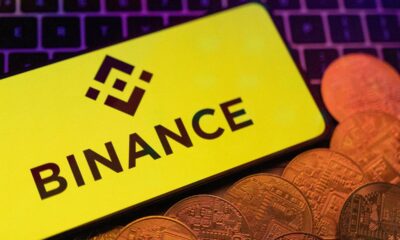
 Regulation1 year ago
Regulation1 year agoFinancial Intelligence Unit imposes ₹18.82 crore fine on cryptocurrency exchange Binance for violating anti-money laundering norms
-

 Bitcoin1 year ago
Bitcoin1 year agoBitcoin Drops to $60K, Threatening to Derail Prices of Ether, Solana, XRP, Dogecoin, and Shiba Inu ⋆ ZyCrypto
-
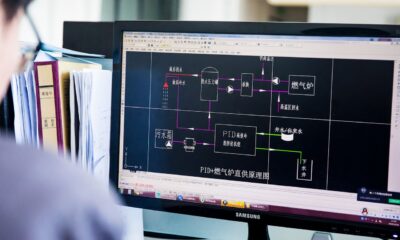
 News1 year ago
News1 year agoSendBlocks Debuts with Major Support to Improve Blockchain Data Management



